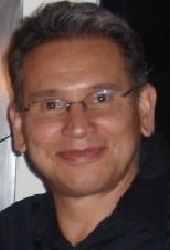Rhythm and Timing Exercises for Cerebral Vascular Disease in American Indians

Project Principal Investigator/s:
Dr. Steven Verney
Funding Agency:
NIH - National Institute of General Medical Sciences (NIGMS) and National Institute on Aging (NIA)
Amount Awarded:
$2,052,866
Period of Performance:
09/2015 - 03/2019
Goals and Aims of Study
American Indians experience a disproportionately high incidence of cerebrovascular disease (CBVD) relative to non-Indians with twice the stroke rate of the general US population. The proposed study will conduct a randomized, controlled trial to ascertain the effects of a culturally tailored rhythm and timing intervention on cognition, depression, and quality of life. This study will yield important insights into the relationships among cognitive and motor rehabilitation, neuropsychological assessment, and brain abnormalities that can inform treatment efforts as one way to reducing American Indian CBVD disparities.
How this Research Will Benefit Society
The proposed study will further our knowledge of the relationships among of cognitive and motor rehabilitation, neuropsychological assessment, and CBVD-related brain abnormalities providing valuable direction for more effective screening, treatment, and prevention of CBVD-related cognitive impairment. Thus, this study has significant health disparities implications for American Indians who exhibit the highest rates of stroke and related risk factors.
